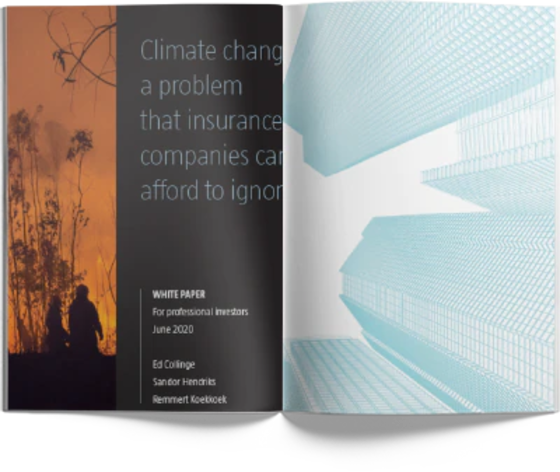

The unique climate change risks facing insurers
Climate change has become undeniable, and no industry has greater exposure to its risks than the insurance sector. It poses a unique threat to both sides of their balance sheets – to insurers’ assets as well as their liabilities.
It’s not only the rising costs from claims for damage to property caused by increasingly severe weather that pose the problem. Insurers invest the premiums they receive in financial markets to gain enough returns to fund their liabilities.
These investee companies are themselves exposed to climate risk, particularly through the need to decarbonize in the transition to a low-carbon economy. This creates a double whammy for insurers and it urgently needs addressing.
A new white paper from the insurance team at Robeco entitled ‘Climate change: a problem that insurance companies can’t afford to ignore’ examines the issue from multiple angles.
First, there are the costs: the ever-increasing bill for claims from storm damage or flooding raises the question about what will be insurable in the future. Businesses near the coast or on flood plains may find themselves being rejected for cover.
The far bigger problem, though, comes from where insurance money is invested. Insurers tend to invest across a wide spectrum of stocks and bonds to spread their risks and raise as much return as possible within their risk budgets.
This includes companies that are more exposed to climate change risks than others, plus those that face risks from the need to transition to a lower-carbon business model, such as fossil fuel providers and utilities.
So, what to do about it? Robeco offers its expertise in calculating the carbon risk in investment portfolios as a means of assisting insurers with this kind of risk assessment. To find out how, download our white paper today.

Download the publication
Important information
This information is for informational purposes only and should not be construed as an offer to sell or an invitation to buy any securities or products, nor as investment advice or recommendation. The contents of this document have not been reviewed by the Monetary Authority of Singapore (“MAS”). Robeco Singapore Private Limited holds a capital markets services license for fund management issued by the MAS and is subject to certain clientele restrictions under such license. An investment will involve a high degree of risk, and you should consider carefully whether an investment is suitable for you.





















